Shakespeare Memes
Tuesday, April 23rd, 2019Happy 455th Birthday to Shakespeare!
In honor of the occasion, I present… Shakespeare Memes!
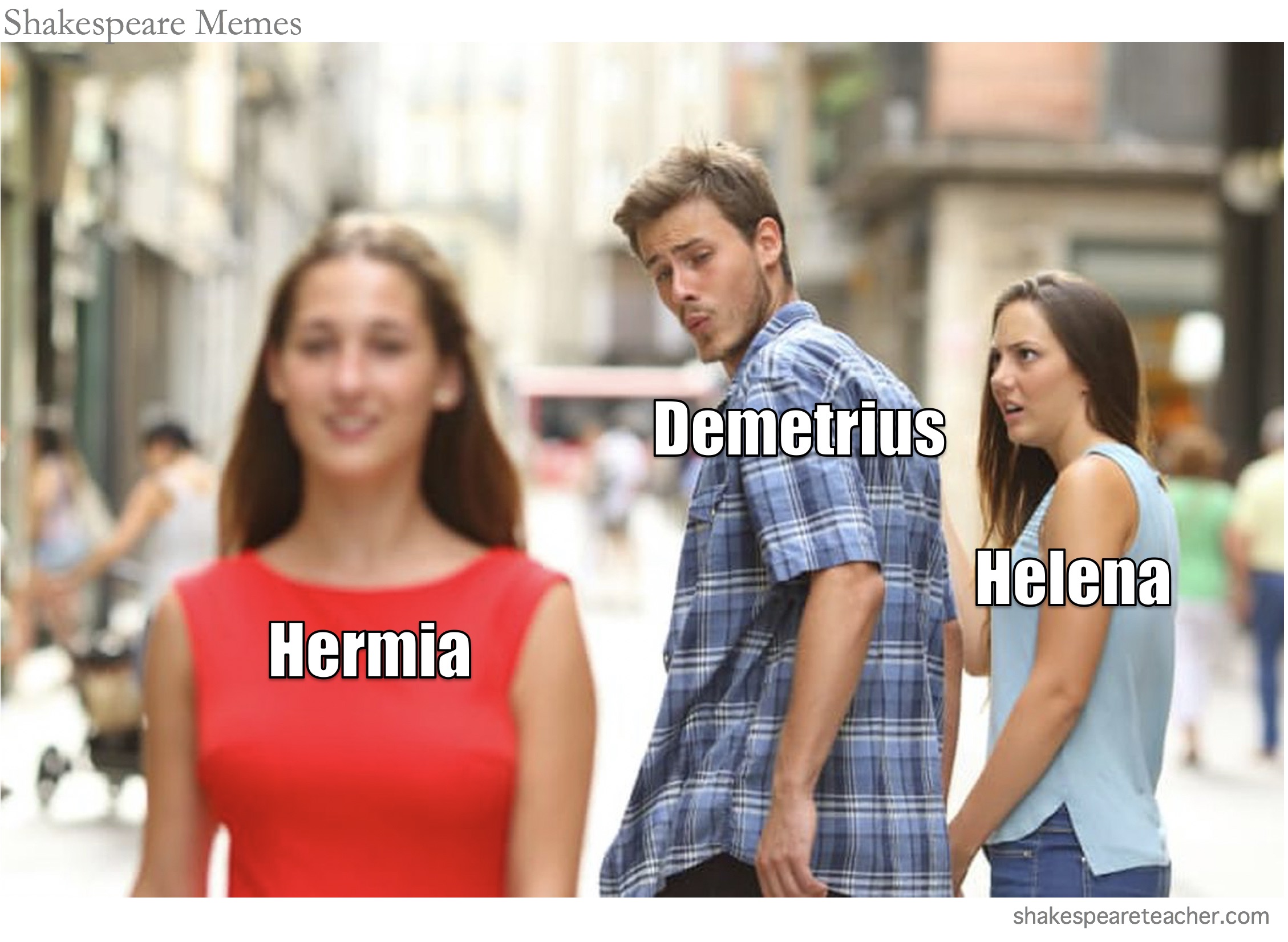

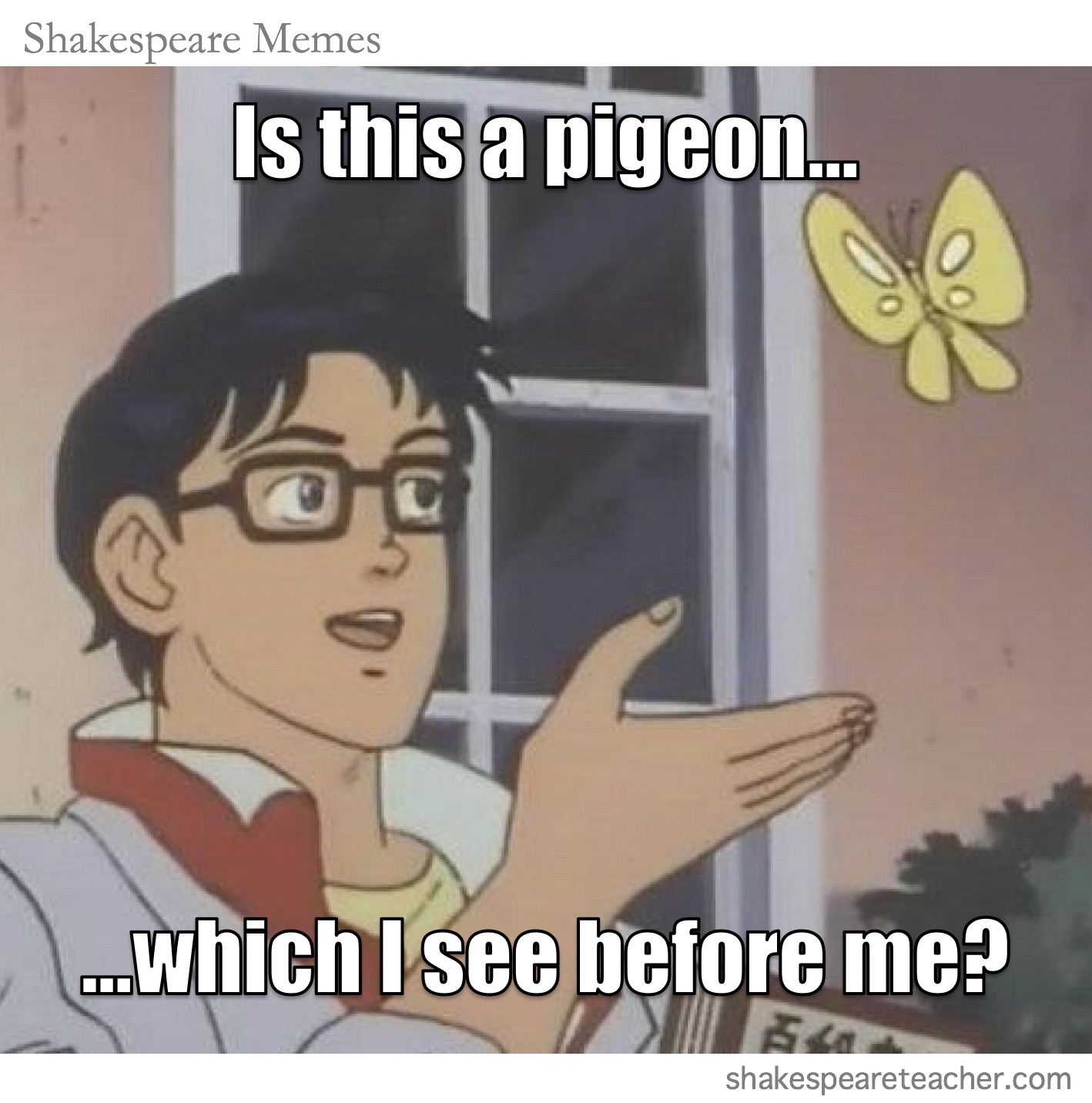

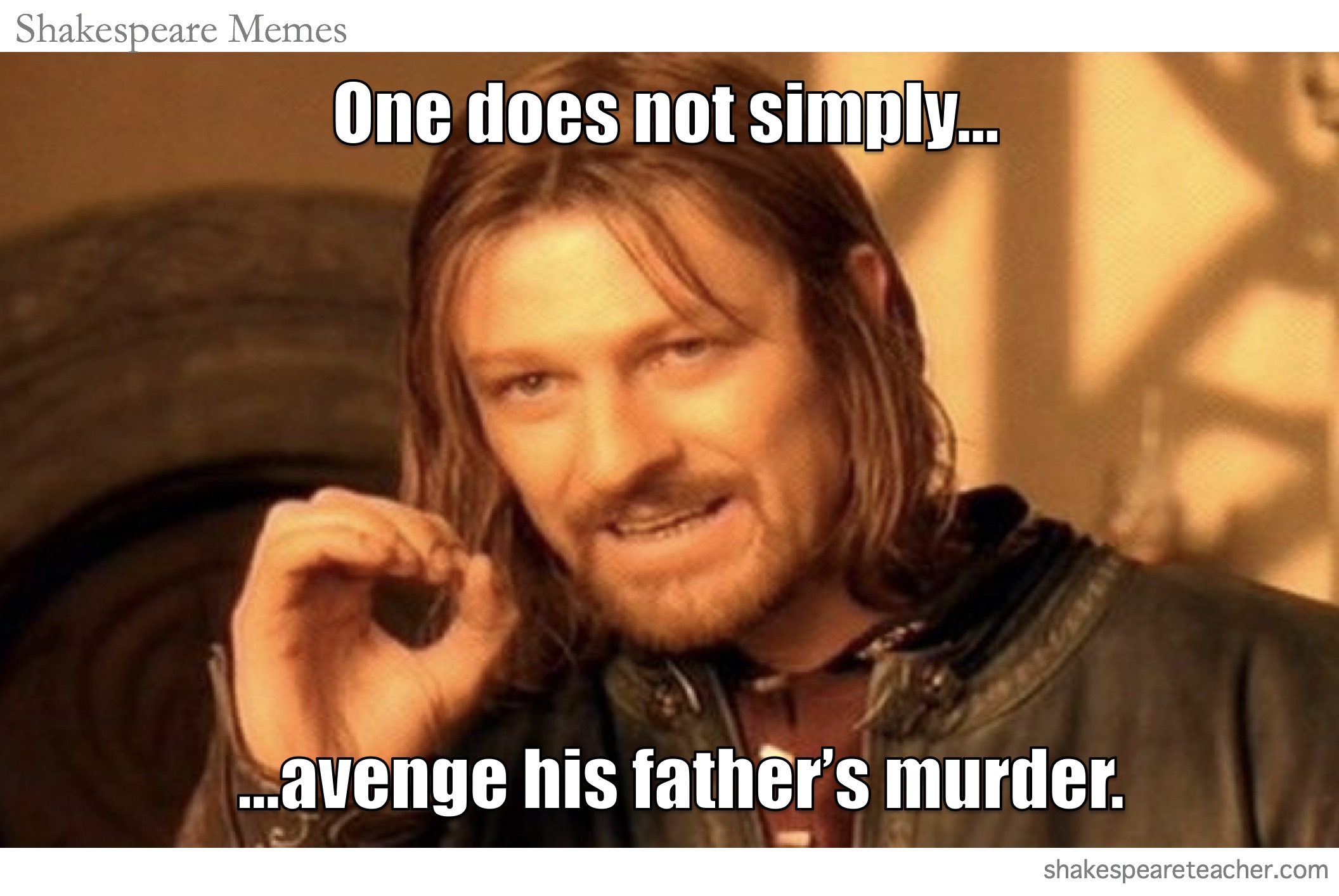
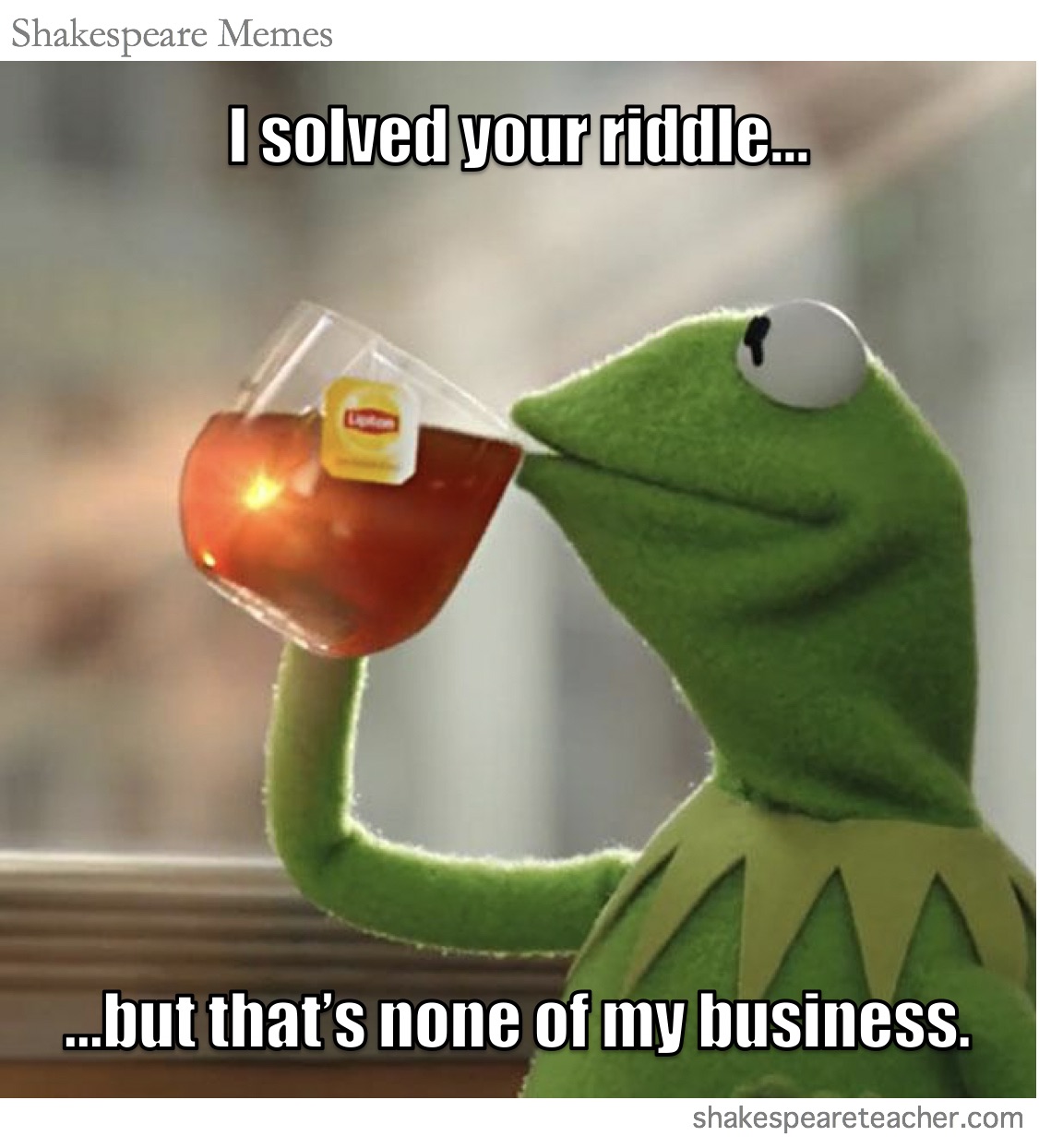

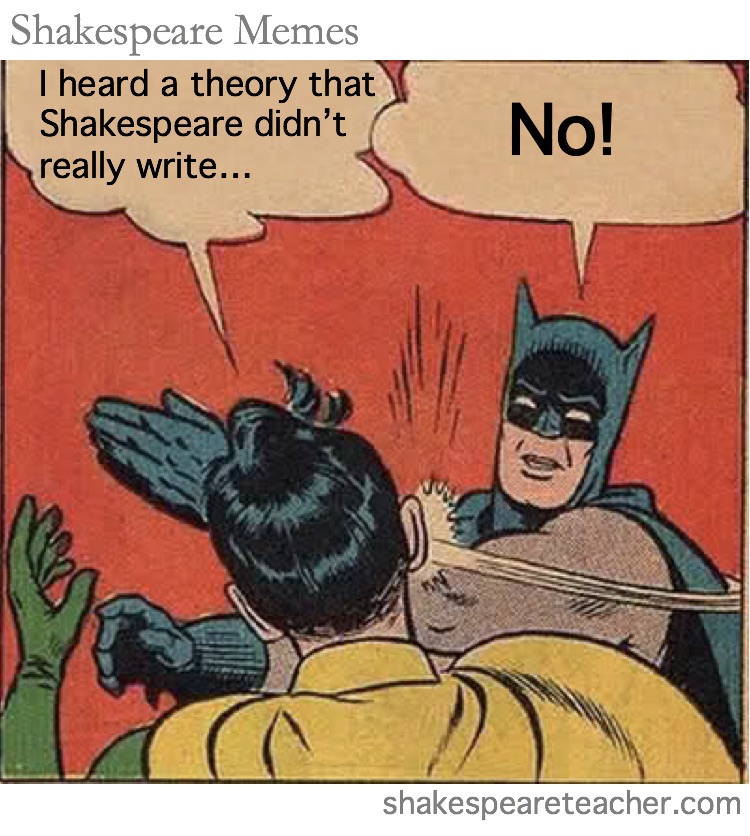
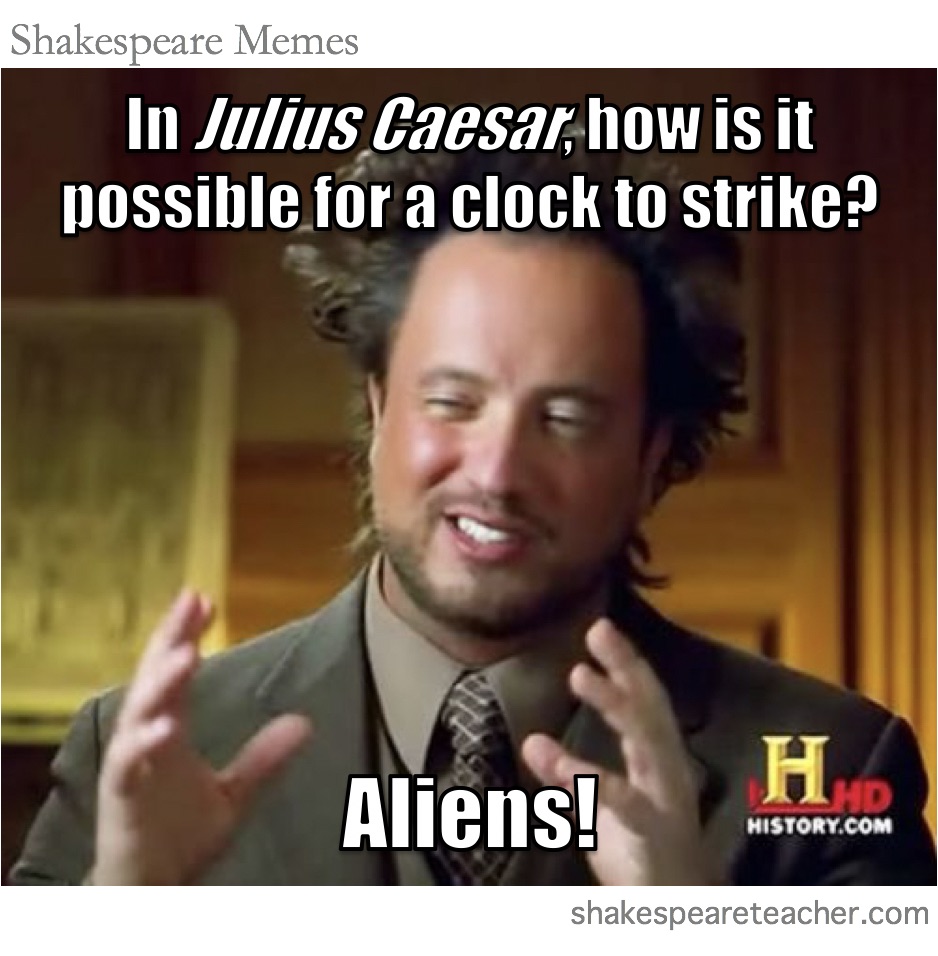
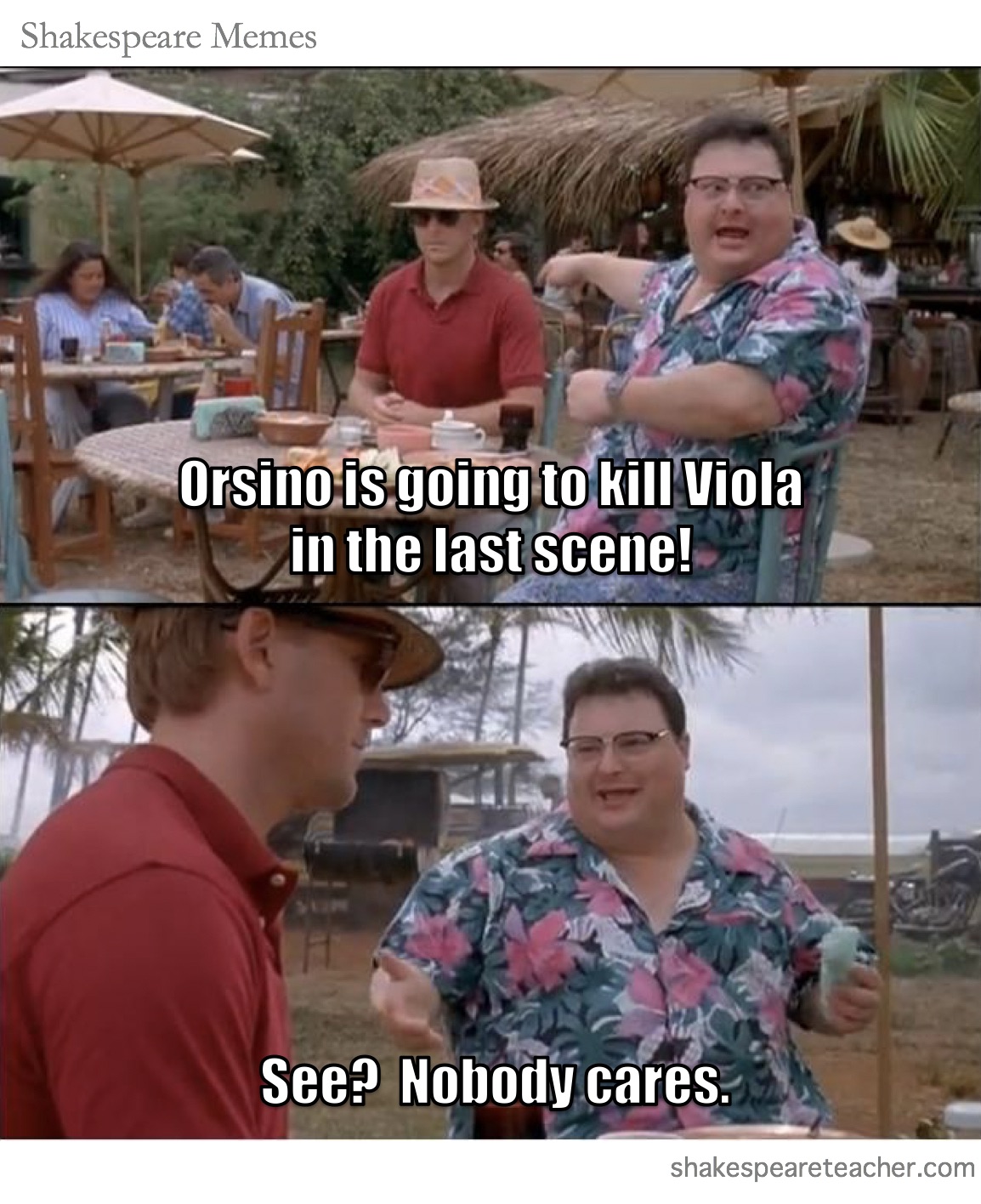
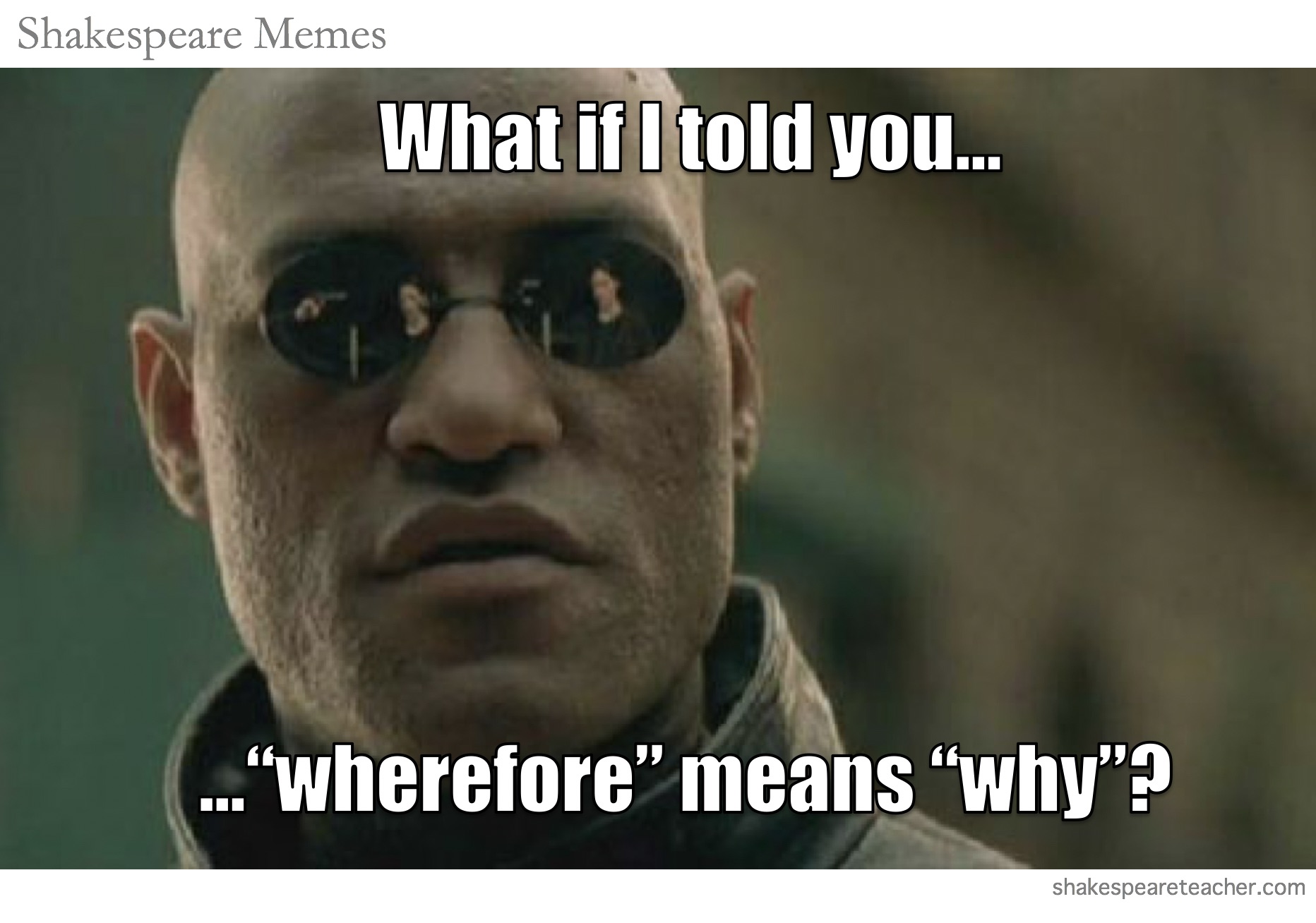
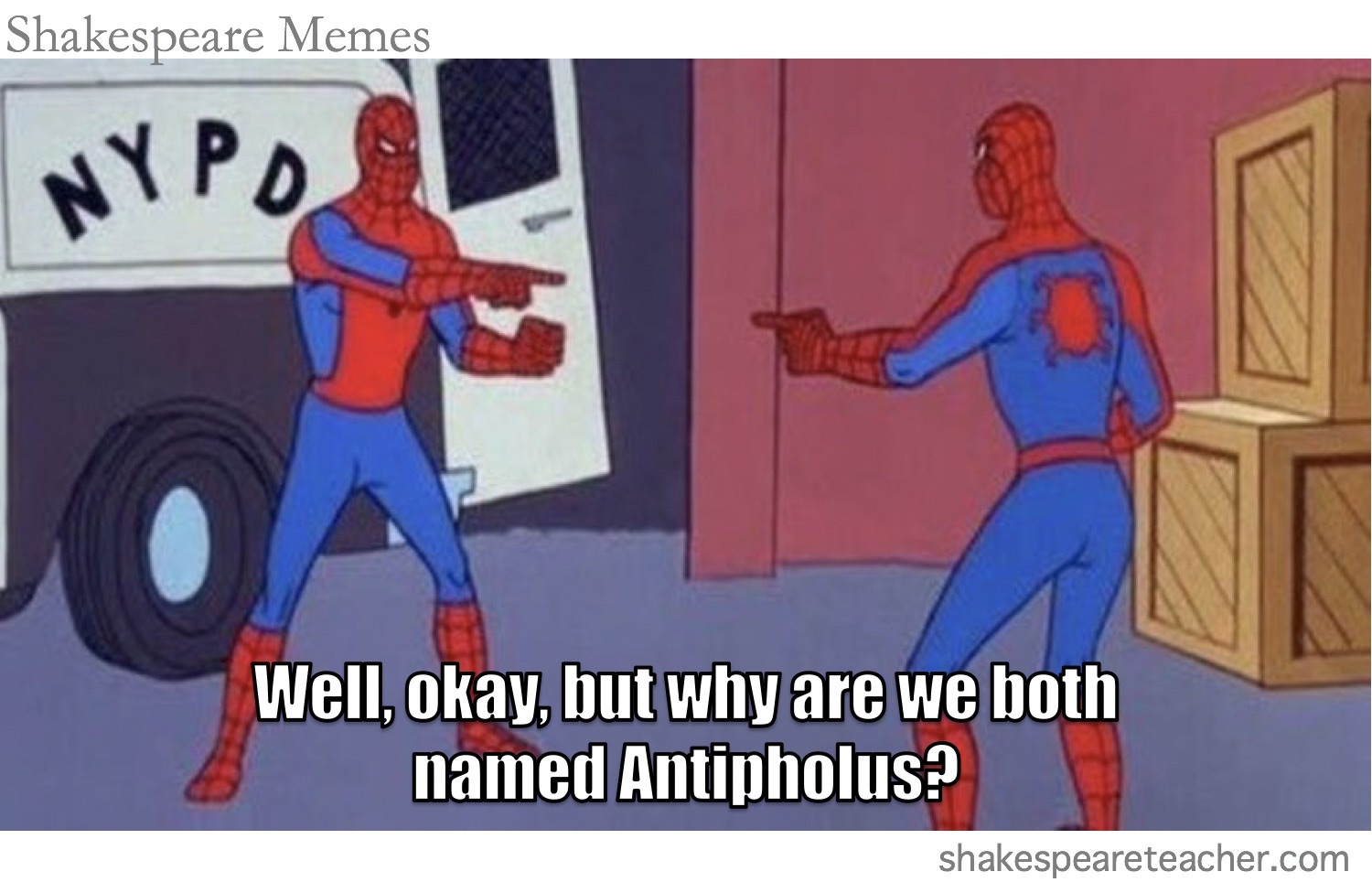
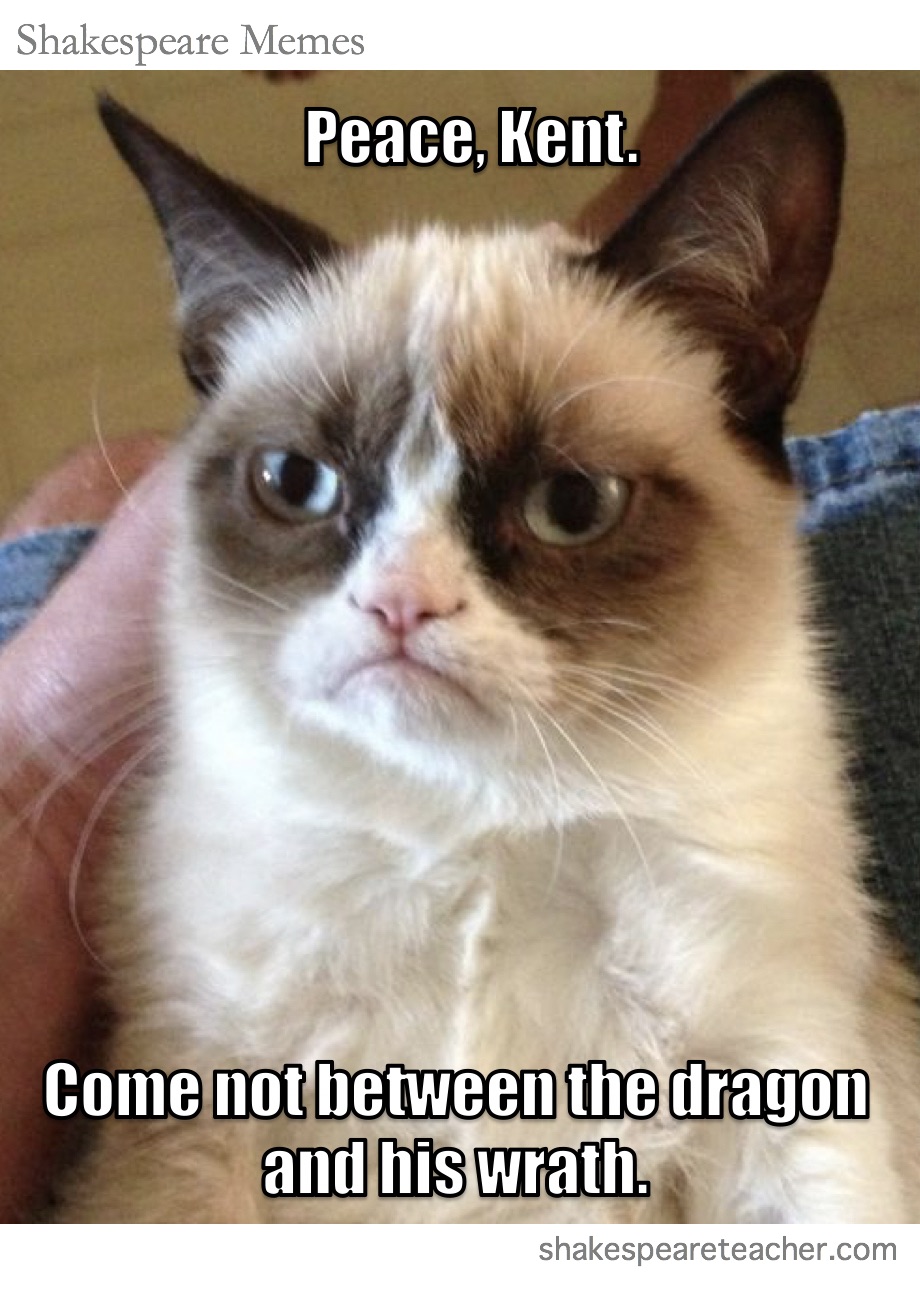
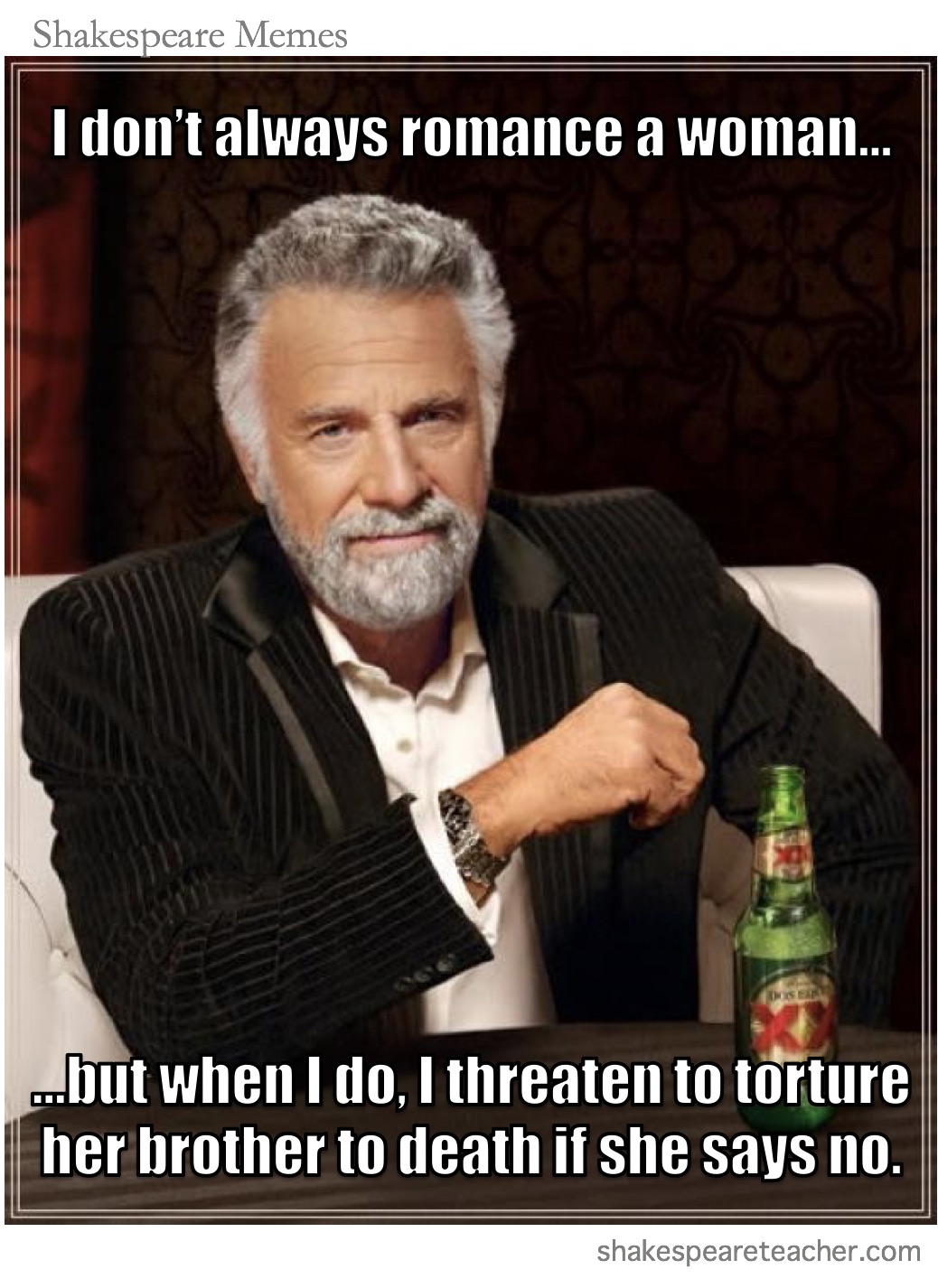
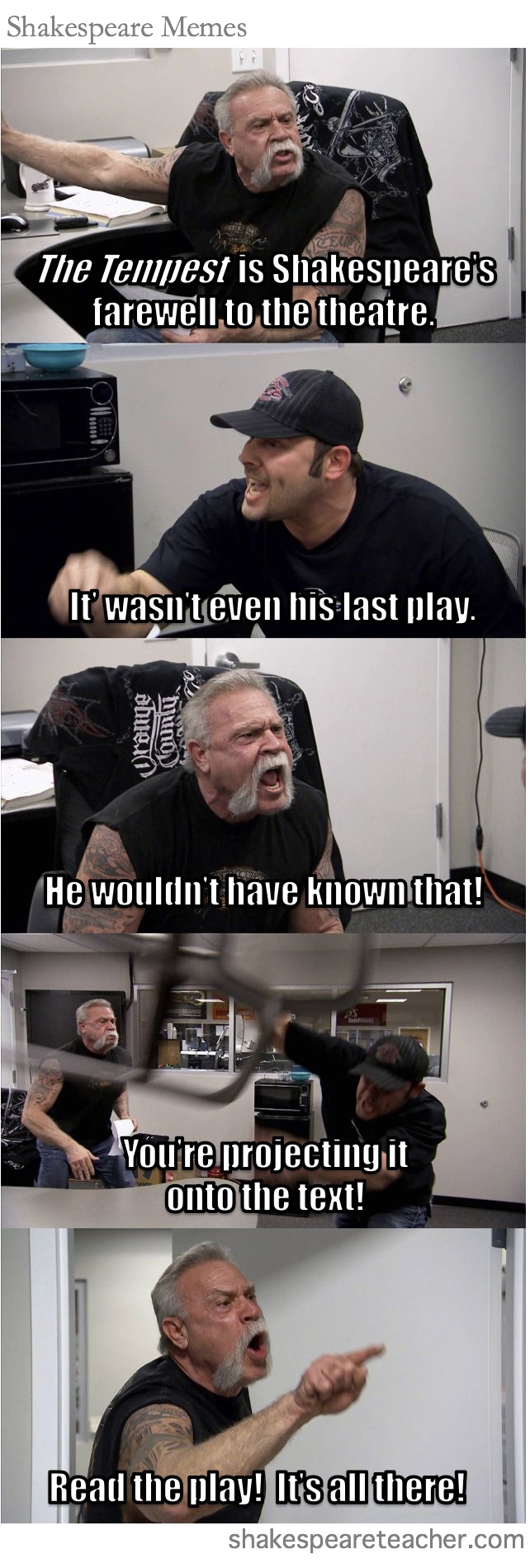
Happy 455th Birthday to Shakespeare!
In honor of the occasion, I present… Shakespeare Memes!















What the great ones tweet, the less will anagram of.
From Twelfth Night:
Why, thou sayest well. I do now remember a saying, “The fool doth think he is wise, but the wise man knows himself to be a fool.”
Shift around the letters, and it becomes:
Hell, I went from kooky wannabe to well-deified show boss to the White House (on my first shot)! Ha, me! Why, I’m a stable genius!
Let’s call it the strange case of Dr. Jekyll and President Hyde.
It all started last weekend, when a coalition of white supremacist organizations staged a demonstration in Charlottesville, Virginia. The idea was that the different alt-right factions, including the Ku Klux Klan and the neo-Nazis, could come together and present a unified front for nationalism and racial purity. With swastika flags, burning torches, and chants such as “Jews will not replace us,” they presented an unambiguous message of anger and hate. Counter-protesters showed up to resist their message, and one particularly disturbed individual drove his car into them, injuring many, and killing Heather Heyer, age 32.
Before we go on, it should be clear that this is not in any way a left vs. right thing. This has nothing to do with Republican or Democratic ideology. Everyone in America should be against this, regardless of how you feel about the tax code or health care reform. And indeed, many prominent Republicans immediately spoke out against this protest and its message of hate. We should expect no less.
But on Saturday, as the events were still unfolding, President Trump came out to read a prepared statement, in which he stated that “we condemn in the strongest possible terms this egregious display of hatred, bigotry, and violence.” He then stopped reading, looked up, and added “on many sides… on many sides.”
Deflection is a common rhetorical technique, used by politicians and their supporters, mainly when they are losing the argument and want to shift the focus of the conversation. Push a Trump supporter (or President Trump himself) too far, and you’ll get an earful of Benghazi or Hillary’s e-mails. And, yes, we do it too when our back is against the wall. (Sure, Obama used drones, but Bush did it too!)
So there’s nothing unusual about deflection, and it’s easy to call it out when it happens. But why on earth would President Trump use such a technique, or any technique at all, to defend the white supremacists? Sure, you can use deflection to shift focus onto the counter-protesters if you want to. But why? It only makes sense if you see the alt-right as “your side.” Is that what the President was signaling?
Needless to say, many were left feeling unsatisfied with this statement on Saturday. Pushback against his comments became so ubiquitous that he was forced to issue another statement last Monday. This time, he said all of the things a President is supposed to say, decrying racism as evil, and naming the various hate groups as well as the name of the woman who died in the protest. Some said he looked like a hostage being forced to read a statement against his will. Others criticized him for not speaking out sooner. But he said everything we asked him to say, and if he had left it there, the issue would have been closed.
He did not leave it there.
The next day, he was making an announcement about infrastructure. But when he took questions, they were not about infrastructure. This time, the President, finally freed from the oppressive shackles of prepared statements written by his more thoughtful policy advisors, doubled down on his deflection away from the white supremacists. He never explicitly said both sides were equally to blame, but that seemed to be his attitude. He coined the term “alt-left” as though people who want to raise the minimum wage and implement a single-payer healthcare system were on the same moral plane as Nazis. He also implied that it was the counter-protestors who were physically attacking the alt-right, when all of the evidence I’ve seen is to the contrary. He also felt the need to point out that the white supremacists had a permit, while the counter-protesters did not. (Seriously, he said that.) This was a new low for the Trump presidency, and that’s no easy bar to clear.
But then, this past Monday, he gave an address laying out a foreboding agenda in Afghanistan. Content aside, he was calmly reading from the teleprompter, just like a real big-boy president. He was measured, dignified, and – dare I say it – uncharacteristically presidential. He began with an eloquent call for unity against division. Had he not already relinquished all moral authority to make such a statement, it would have been beautiful. And when he talked about Afghanistan, he projected strength and resolve. There was the occasional reference to the previous administration’s blame and more than a little unearned braggadocio, but he didn’t trip over the podium or light himself on fire, and I caught myself hoping to see more of this president moving forward.
It took exactly one day to burst that bubble. At a campaign rally (!) in Arizona on Tuesday, he gave a completely unhinged performance, telling an alternate-universe version of the story above, and attacking the media as fake news outlets out to get him personally.
At the moment, it feels like we have two presidents, and when he speaks, we don’t know which one we’re going to get. But let’s not be under any illusions about which one is the @realDonaldTrump.
From Twelfth Night:
One face, one voice, one habit, and two persons;
A natural perspective, that is, and is not!
Shift around the letters, and it becomes:
I see two presidents: one, a non-factual peevish scab; another can pivot, read notation.
Earlier this week, DeLisa hipped me to a Shakespeare event happening right here in New York. It was called the New York Shakespeare Convention, or ShakesCon for short, and was a gathering of independent Shakespeare-related theatrical companies for a weekend of artistic abandon.
I went on Thursday night and joined up with some fellow attendees to form a team for the Shakespeare trivia challenge. We had a nice balanced range of knowledge across our team, and ended up tying for first place! Between rounds, various groups performed scenes written or inspired by Shakespeare. I had a great time watching the performances and socializing with fellow Shakespeare fans. I even ran into Cassius, who I had never actually met in person and only recognized from her videos back in the day.
I missed Friday evening’s festivities, but I was able to return on Saturday for both afternoon and evening sessions. The afternoon consisted of more Shakespeare-themed presentations (plus one on Beowulf), hosted by a trio of Shakespeare improv artists called “As You Will” who were seriously impressive.
The evening’s performance was something called “5 Ways Shakespeare.” It was a complete performance of Twelfth Night, but each act was prepared and performed by a different company. To help the audience keep the continuity of the story, each character had a scarf with a color representing that character. The colors remained consistent for the character throughout the play, even as the actor playing that role shifted.
What really stood out to me was how cohesive the performance actually was, even without a unifying directorial vision and with five different philosophical approaches to Shakespeare explicitly articulated. The characters in this play are all so well defined that I think we’d have known who was who even without the scarves. When Toby and Andrew enter in each act, they couldn’t be anyone else. Olivia could never be mistaken for Viola. And Malvolio is Malvolio is Malvolio. Also, I hadn’t noticed before how much the characters describe what they’re about to do and what they’ve done, but it turns out that the text lends itself well to this kind of experiment.
With each performing group responsible for only an act, there was an added urgency to make each act count. But at the same time, there was a more relaxed feel. Without the pressures of an entire production to sustain, each team was free to have fun with their segment. The players frequently brought the audience into their performances, which created a community in the room and added to the sense of joy. It wasn’t clear to me that any of the teams knew what any of the other teams were doing, so the audience and the performers were sharing in the spontaneity of the theatrical moment together. And when a performer in the Act V group made a seemingly-impromptu callback to a gag introduced by the Act IV team, it brought the house down.
I know DeLisa directed Act II, but I don’t know the names of any of the performers, so I can’t give any shout-outs. The companies are listed on the website. But the acting and directing were fantastic across the board. Malvolio was somehow a standout in each of the five acts, which speaks well of the character Shakespeare wrote as well as the five actors cast in that role.
Kudos to the organizers of ShakesCon 2017! I’m looking forward to joining you again in 2018.
From Twelfth Night:
As the old hermit of Prague, that never saw pen and ink, very wittily said to a niece of King Gorboduc, “That that is is.”
Shift around the letters, and it becomes:
At his unhinged fake press conference took to brag, Trump lied away, distorting to validate his vanity with hate.
From Twelfth Night:
What great ones do the less will prattle of
Shift around the letters, and it becomes:
Was a selfie wrong? That protest led to hell.

At a good production of Shakespeare, you may be impressed by the production values. The innovative choices made by the director may, at a good production of Shakespeare, impress you. At a good production of Shakespeare, you will likely be impressed by the actors.
At a great production of Shakespeare, you will be impressed by the Shakespeare.
Tim Carroll’s production of Twelfth Night, currently playing at the Belasco Theatre, is a great production, precisely because its component elements all come together to articulate, embody, and enhance the creative genius of the play itself. All of the comic bits and stage business of this production found all of those fun moments and built on them to create a cascade of joy for the production’s entire length.
Mark Rylance is the standout in the all-male cast. He manages to create an Olivia who is able to display a wide range of emotions without ever descending into camp. With one notable exception, none of the humor of his outrageously funny performance comes from the fact that he is male. His Olivia is vain; she’s not interested in Orsino’s advances, but can’t help but be flattered by them. And when she does fall in love, she can no longer maintain her practiced detachment. We laugh at the character, and not the actor playing her.
The one exception is that Rylance affects a very funny gait that makes it seem like he’s gliding beneath his flowing dress. This is probably funnier because we know it’s a man, but for the most part, Rylance creates a comic performance that’s true to his character and not at all about cross-dressing. In fact, I would say the same about the compelling performances of Viola (Samuel Barnett) and Maria (Paul Chahidi) as well; they created believable realistic characters that brought out the humor of the moments and not the drag.
I thought the cast was amazing across the board, but a few more of the actors are worthy of highlighting. Peter Hamilton Dyer was riviting as an edgy Feste. Angus Wright created a very funny Sir Andrew. And Stephen Fry was outstanding as Malvolio, as you knew he would be. In the early scenes, he was less prissy and arrogant than most Malvolii that I’ve seen, and so his innocent glee at reading the letter becomes heartbreaking. We actually feel sorry for Fry’s Malvolio, and making this character sympathetic is no easy task.
Everything was designed to look as it had looked in the Globe, with sets, costumes, and music carefully calibrated for authenticity. An all-male cast talked to audience members on stage. But for me, the best part was the raw theatrical moment of being part of a shared experience with the rest of audience. The performance I saw got more instances of spontaneous applause than a State of the Union address. And when the curtain call came, we didn’t want it to end.
The actors did the curtain call as a dance. The audience started clapping and cheering while the actors danced. Gradually, some of the clapping fell into the rhythm of the music, and soon we were all clapping to the beat. When the music stopped, the dance ended, and the audience exploded once again into a cheering applause. I left with a new respect for the play, and for the power of what great theatre can do.
You may note that I loved this production, but not the other production by the same creative team. How can this be? Well, I think a collaborative artistic creation is more than the sum of its parts. There needs to be a chemical reaction that takes place, and the play has to be a part of that equation. One performance worked with the play it was interpreting, and the other worked in opposition to it. The results of those decisions were two very different evenings at the theatre, at least for me.
Twelfth Night will be running until February 16, but Stephen Fry’s last performance will be on February 13, so that’s probably the end date you want to use. If you enjoy a great production of Shakespeare, you won’t want to miss this one.
In As You Like It, Celia reveals to Rosalind that she knows the name of Rosalind’s secret admirer. It is Orlando, who has already captured her heart. Immediately, Rosalind begins to pepper Celia with an overwhelming litany of questions, which causes Celia to exclaim:
It is as easy to count atomies as to resolve the propositions of a lover
Wait, what? Isn’t this the same play that said that the world is six thousand years old? How could Celia possibly know about atomic theory? Fortunately, there’s no job too small for the Shakespeare Follow-Up.
According to my Folger edition of the play (Barbara A. Mowat and Paul Werstine, eds.), the word “atomies” as used here means “dust particles in sunlight.” Oh.

Thou tell’st me there is murder in mine eye:
’Tis pretty, sure, and very probable,
That eyes, that are the frail’st and softest things,
Who shut their coward gates on atomies,
Should be call’d tyrants, butchers, murderers!
So that would appear to be that. But, wait! According to my Arden edition (Juliet Dusinberre, ed.), there’s more to the story. “Atomies” does indeed mean “tiny particles,” but…
The word, which occurs twice in AYL (see 3.5.13) and in no other Shakespeare play, may suggest the territory of the research conducted by Ralegh’s navigator, Thomas Harriot, into the atom and into optics, with particular relation to the refraction of light and the nature of visions.
(We’ll get back to Harriot, but as a side note, you may remember that Mercutio also uses the word “atomies” in the Queen Mab speech. To be fair, I checked my Arden edition of Romeo and Juliet (Brian Gibbons, ed.), and found instead the word “atomi,” which is from Q1. The Folio has “atomies.” So it’s arguable whether the word appears in another play, but the Arden is at least consistent. Even if you say the word is unique to As You Like It, however, the concept does appear in at least one other play.)
Atomism, the theory that all matter is made up of smaller units that cannot be further divided, was an idea embraced by several Pre-Socratic philosophers, most notably Leucippus and Democratus. Aristotle rejected this theory, believing that the four elements (earth, water, air, and fire) were continuous and infinitely divisible. As with most of these kinds of arguments, Aristotle’s version won the day. Although there were some notable figures who did believe in atomism throughout the ages, Aristotle’s theory was still the prevailing concept even in Shakespeare’s day. So in Twelfth Night, Viola gets Olivia’s attention by telling her “you should not rest/ Between the elements of air and earth, But you should pity me!” as Sir Toby asks Sir Andrew “Does not our life consist of the four elements?” when trying to make a point.
However, even in Shakespeare’s early seventeenth century, atomism was making a comeback, boasting such impressive adherents as Francis Bacon, René Descartes, Thomas Hobbes, and even Galileo. Thomas Harriot was an early contributor to the developing theory, though at a time when it was still dangerous to speak too openly about what was considered a heretical idea. It’s intriguing to think that the notion may have captured Shakespeare’s imagination as well, but this is merely speculation. I don’t think you can strongly infer this from his use of a particular word twice in a given play, especially when the second use of the word points fairly decisively in the other direction.
In 1808, John Dalton (building on the work of Lavoisier and Proust) demonstrated that when a substance (such as water) is broken down into its components (such as hydrogen and oxygen), the proportion can always be described with small integers, implying that there is a direct correspondence on some foundational level. His atomic theory of matter led to further inquiry and discovery throughout the 19th century. In the early 20th century, quantum mechanics allowed scientists such as Max Planck, Albert Einstein, and Nils Bohr to describe the unique properties of particles on the microscopic scale.
There’s a lot more to the story, but it will have to suffice to note that in the mid-20th century, science learned how to split the atom, unleashing the potential for a virtually unlimited power source, weapons of unthinkable destruction, and a series of ethical questions that have turned out to be much more difficult to resolve than even the propositions of a lover.
In As You Like It, Le Beau gives some friendly advice to Orlando:
Good sir, I do in friendship counsel you
To leave this place. Albeit you have deserv’d
High commendation, true applause and love,
Yet such is now the duke’s condition
That he misconstrues all that you have done.
The duke is humorous: what he is indeed,
More suits you to conceive than I to speak of.
The duke is humorous? He doesn’t sound very humorous to me. Can we get a Shakespeare Follow-Up?
The “humours” referred to four bodily fluids that were believed to affect one’s mood and personality: blood, phlegm, yellow bile, and black bile. This was a theory that traced back as far as the ancient Greeks, and it was widely accepted in Shakespeare’s time. An imbalance of any one of these fluids in a person would have a particular effect. So, the duke is moody, not funny. And this use of the word is fairly consistent across the canon. So when Antipholus of Syracuse says he is not in a “sportive humour,” or Benedick says “a college of witcrackers cannot flout me out of my humour,” or Petruchio says “I’ll curb her mad and headstrong humour,” none of them are talking about the funny.
It’s clearly a retrochronism, but understanding a little bit about the humors can actually shed some light on quite a few lines in Shakespeare, so let’s review.
An excess of blood was thought to make you sanguine, and the cheerfully happy word actually comes from the Latin for bloody. So when Sir Toby Belch asks “Am not I consanguineous? am I not of her blood?,” he is using the term to describe a blood relationship.
Phlegm leads to quiet rationality. Kant actually thought it was the absence of temperament. Mistress Quickly therefore misapplies the term in The Merry Wives of Windsor when she beseeches Doctor Caius to “be not so phlegmatic.” She is trying to calm his anger down. She should have said “choleric.”
Choler stems from yellow bile (from the Greek “chole” for bile), and the word appears frequently in Shakespeare to describe anger or bellicosity. The black (“melan-“) variety of bile (“chole”) was also a frequently used theme. I’ve already written about melancholy in Shakespeare in an earlier post, so I don’t need to repeat it all here. The important thing to remember is that Shakespeare and his audience would have believed that these moods were caused by an imbalance of fluids. This is why bloodletting was such a popular medical practice; they believed they could remove the excess humours by drawing blood or applying leeches.
A poetic reference to bloodletting appears in King Richard II, as Richard attempts to sooth the conflict between Bolingbroke and Mowbray:
Wrath-kindled gentlemen, be rul’d by me;
Let’s purge this choler without letting blood:
This we prescribe, though no physician;
Deep malice makes too deep incision:
Forget, forgive; conclude and be agreed,
Our doctors say this is no month to bleed.
The complainants are seeking a duel, another way to purge choler by letting blood. Richard reframes their grievances as merely an imbalance of yellow bile, and uses the bloodletting metaphor to advocate a more peaceful solution. (It doesn’t work.)
In the 19th century, humours and bloodletting fell out of fashion as medical science developed a better understanding of human biochemistry. Apparently, though, the idea of the four humors survives today as a popular screenwriting technique.
On a somewhat-unrelated final note, do you know why the “funny bone” got its name? Because it’s the humerus! And I hope you find that humorous.